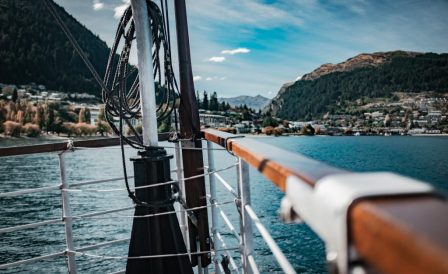Содержание:
- Moving with family to sunny Nelson
- Temporary accommodation
- Finding a house
- Community
- Buying a car
- Buying furniture
- School for a child: prepare for the best
- Kindergarten
- Study, leisure, and first steps in finding a job
- Conclusion
Moving with the family to sunny Nelson
In February 2019, my wife and I, along with our two children aged nine and two, moved to New Zealand, settling in a small town called Nelson, located on the northern coast of the picturesque South Island. Behind us were months of preparation for the move to a new country: gathering and submitting documents for NMIT and the visa (thanks to the team at Kiwi Education for their help and professionalism), as well as a long flight.
Ahead of us lay a new life, which we had to begin with very practical matters—finding housing, furniture, appliances, a car, a school, a kindergarten. All of this, on top of starting my studies, seemed a bit daunting at first. But thanks to our positive attitude and the support of good people, it all turned out to be quite manageable.
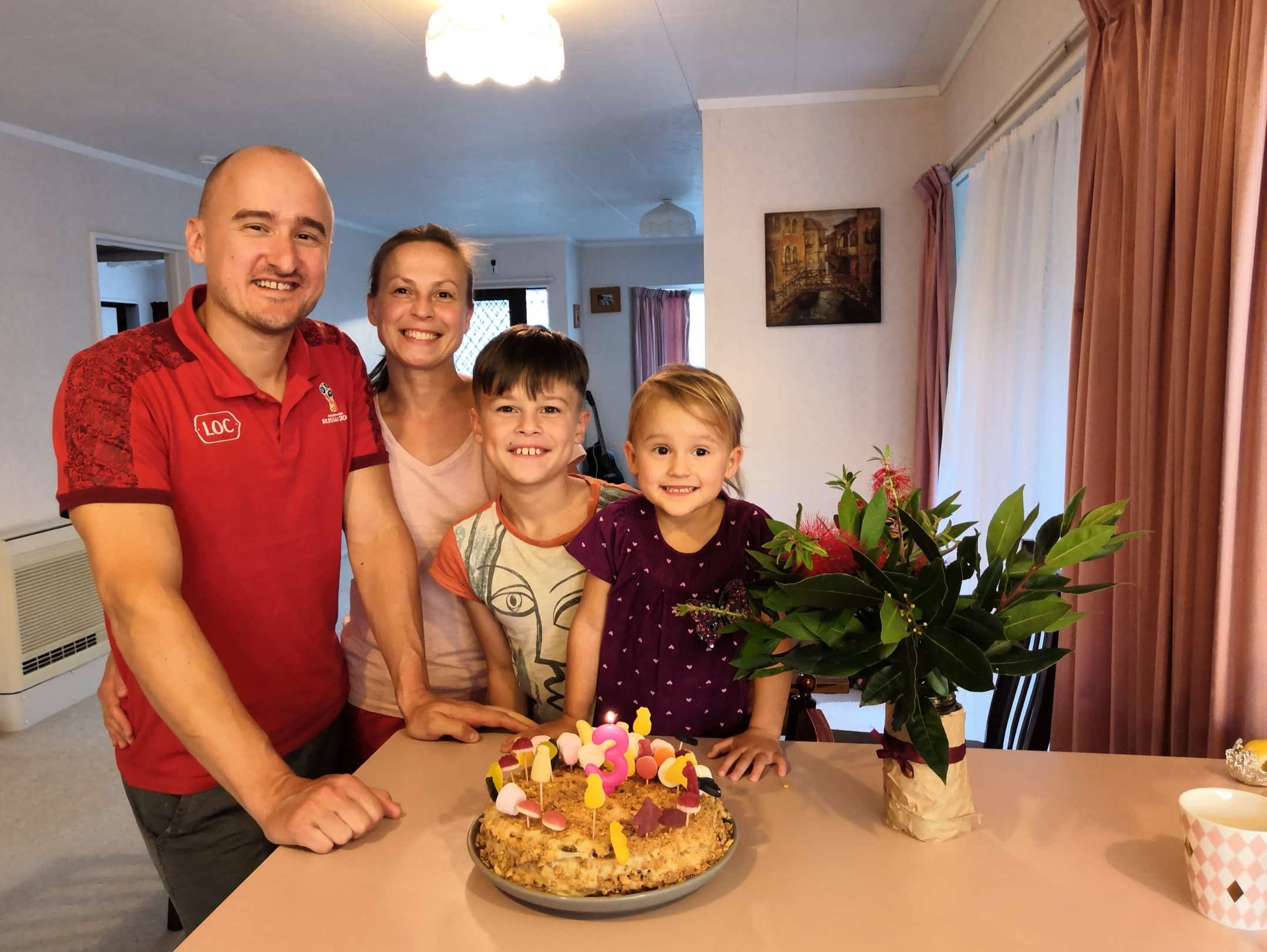
Our family
Now that the first stage of settling in has been successfully completed, I’d like to describe and organize our experience. Like everyone preparing for such a move, we absorbed a lot of information from various sources. Most of these stories were about life in Auckland, which is quite different from the rest of New Zealand, and they were often filled with subjective opinions. There aren’t many stories about moving to smaller towns, so our experience may be useful. I’ll share how we solved the key issues that any family will face when moving to Nelson—or another similar town—and I’ll try to offer useful advice for future immigrants.
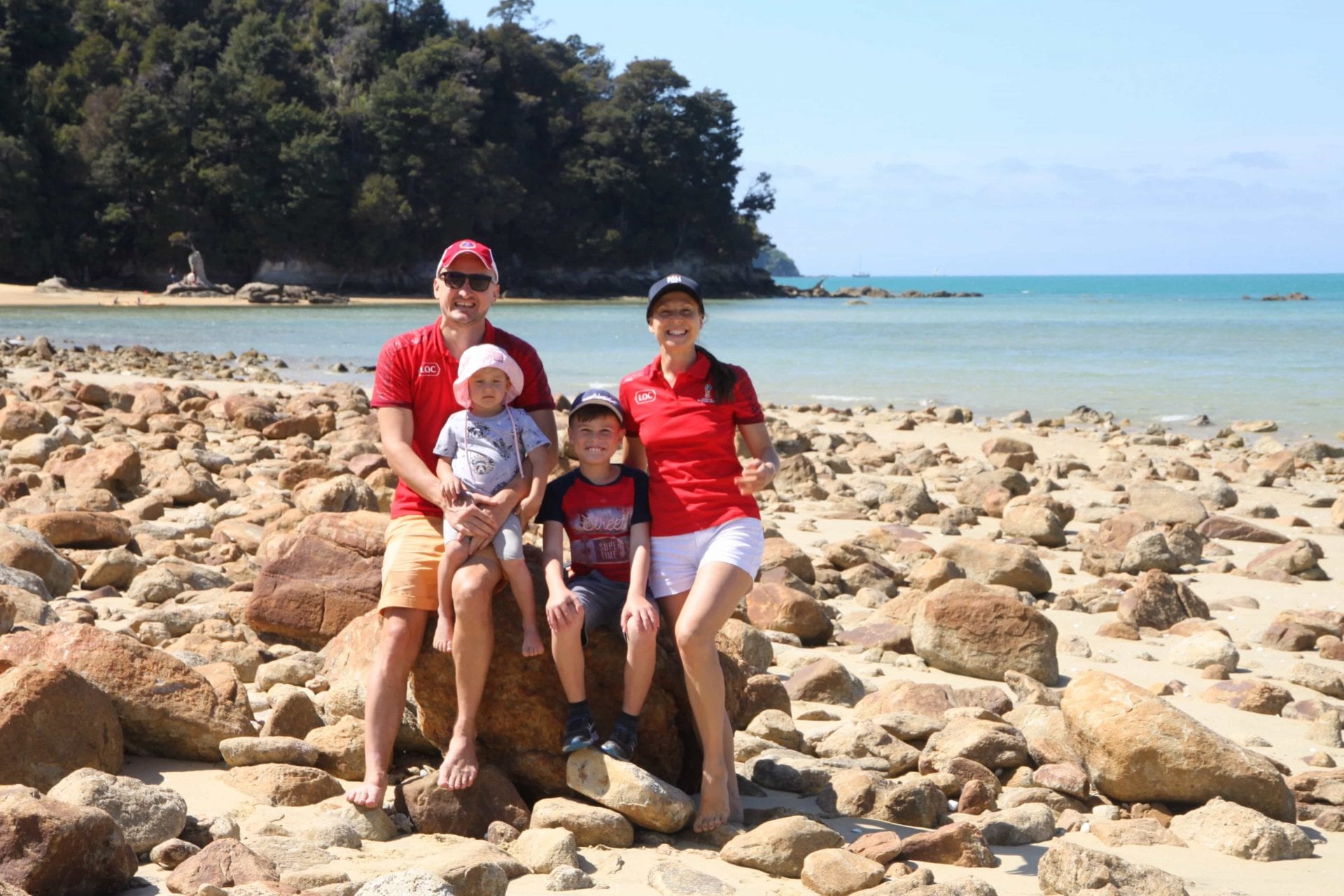
Temporary accommodation
We started looking for our first accommodation in Nelson a bit too late and ended up paying relatively high prices during the peak tourist season. The minimum price per night at a hotel (or rather, a motel) or in private Airbnb homes in our area started at NZ$100–140 (all prices mentioned here are in New Zealand dollars), and such options were snatched up quickly. It’s hard to say how long this “initial period” lasts before you can rent a home long-term, but I’d recommend planning for at least two weeks.
We spent the first week in a small cottage next to the owner’s house, a few kilometers from the city center. This was our first introduction to the country and its way of life. We watched with great interest how an ordinary Kiwi family lived, and our kids had fun playing together in the yard.
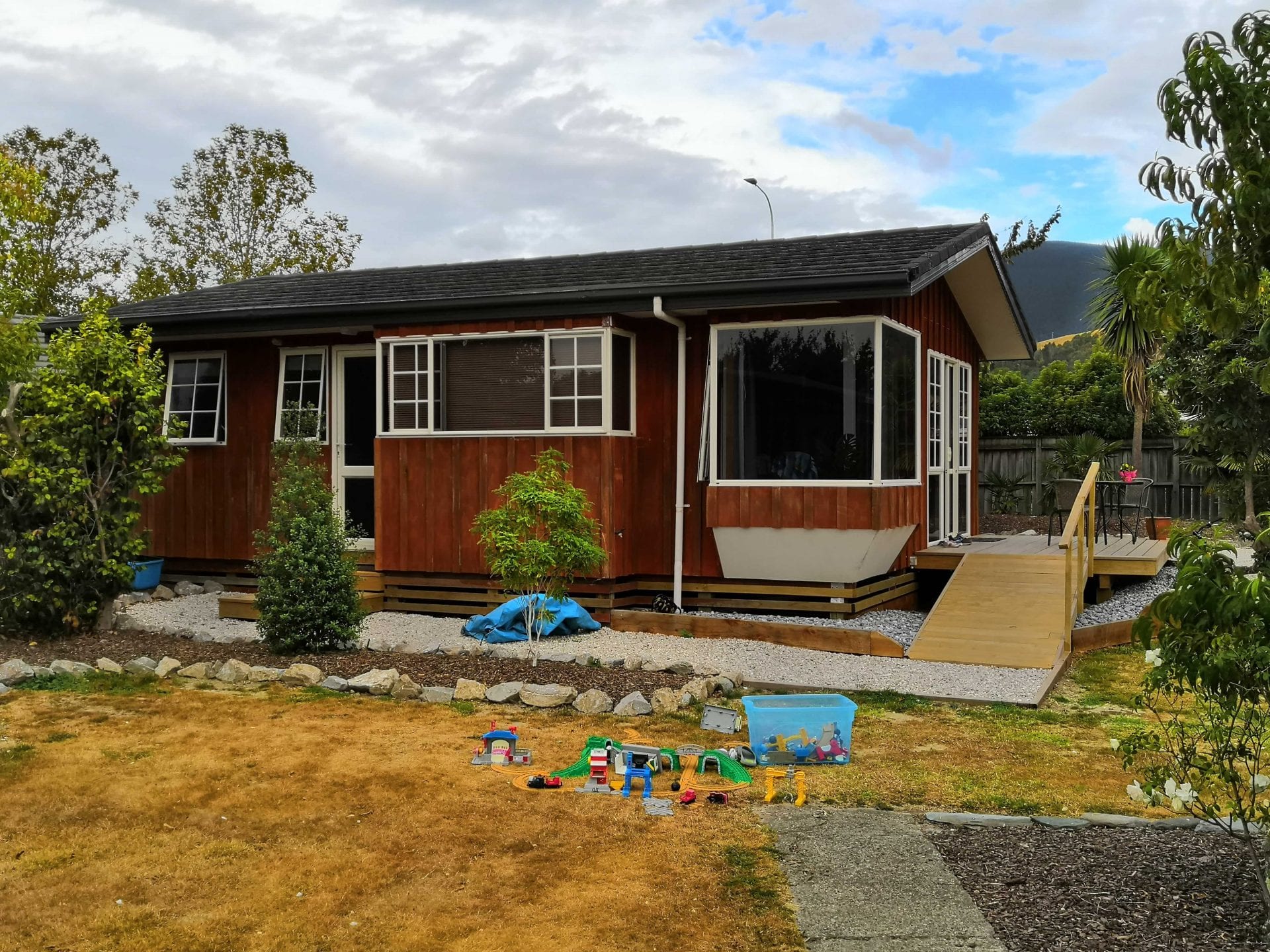
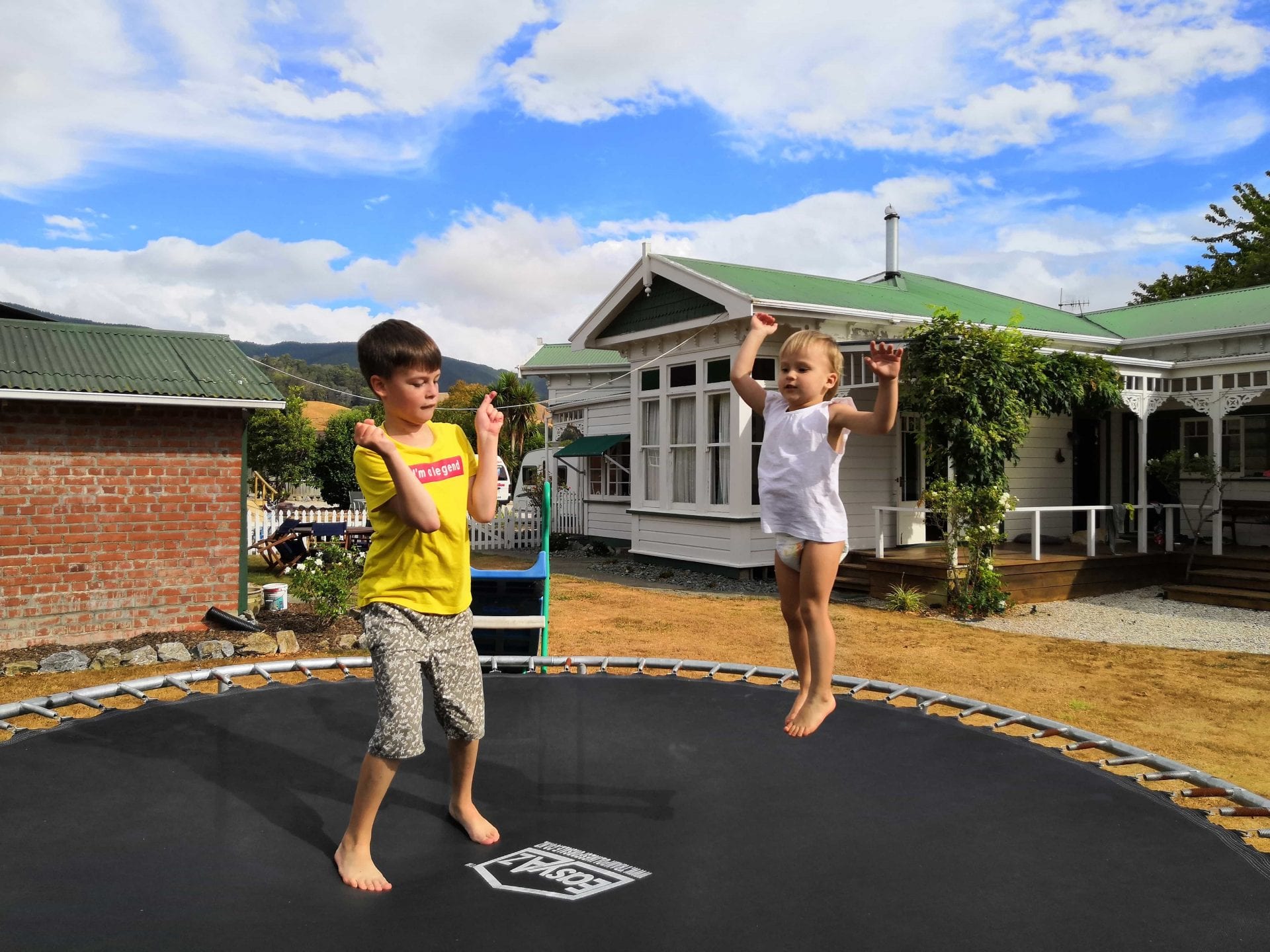
The second week, we rented the bottom half of another family’s house, who had two giant Great Danes, and then spent another couple of days in a motel in the city center. In total, we stayed 17 nights in three different places, making two moves with all our suitcases, backpacks, and a guitar—until we finally moved into our “own” home. Overall, it wasn’t too bad (especially since we already had our own car by the first move), but it’s still better to book temporary accommodation in advance and give yourself enough time to find a permanent place.
There are plenty of options to suit every taste and budget: houses, hotels, hostels, unit apartments, shared kitchens with rooms, even caravans (campervans). Just don’t leave it to the last minute.
Finding a house
Get references in advance. References are very important here. Without rental history and references from previous landlords, it’s quite difficult to secure long-term rental housing. In New Zealand, property owners—or more often, their agents—choose tenants themselves, and applicants without a history are placed at the bottom of the list.
That’s why any documentation that confirms your reliability as a tenant will come in handy. If you’re currently renting, get written references from your landlord stating that you pay on time, keep the property in good condition, etc. If you’ve used Airbnb or stayed directly with hosts while traveling, their reviews can also be helpful (for example, stating that you’re a clean and quiet family). References from employers or from organizations and communities you’re part of may also help. Anything that paints a positive picture of your family is valuable.
In our case, references from two of my former employers in Russia helped a lot (even though it might seem unrelated, it actually made a good impression), as well as Airbnb reviews and a bank statement confirming we had enough funds to cover the rent. We went to five or six property viewings, and the second house we truly liked ended up being offered to us.
It’s also important to speak confidently and openly with agents. They listen carefully, assess people quickly, and make snap internal decisions. Apparently, that’s part of their professional skill set.
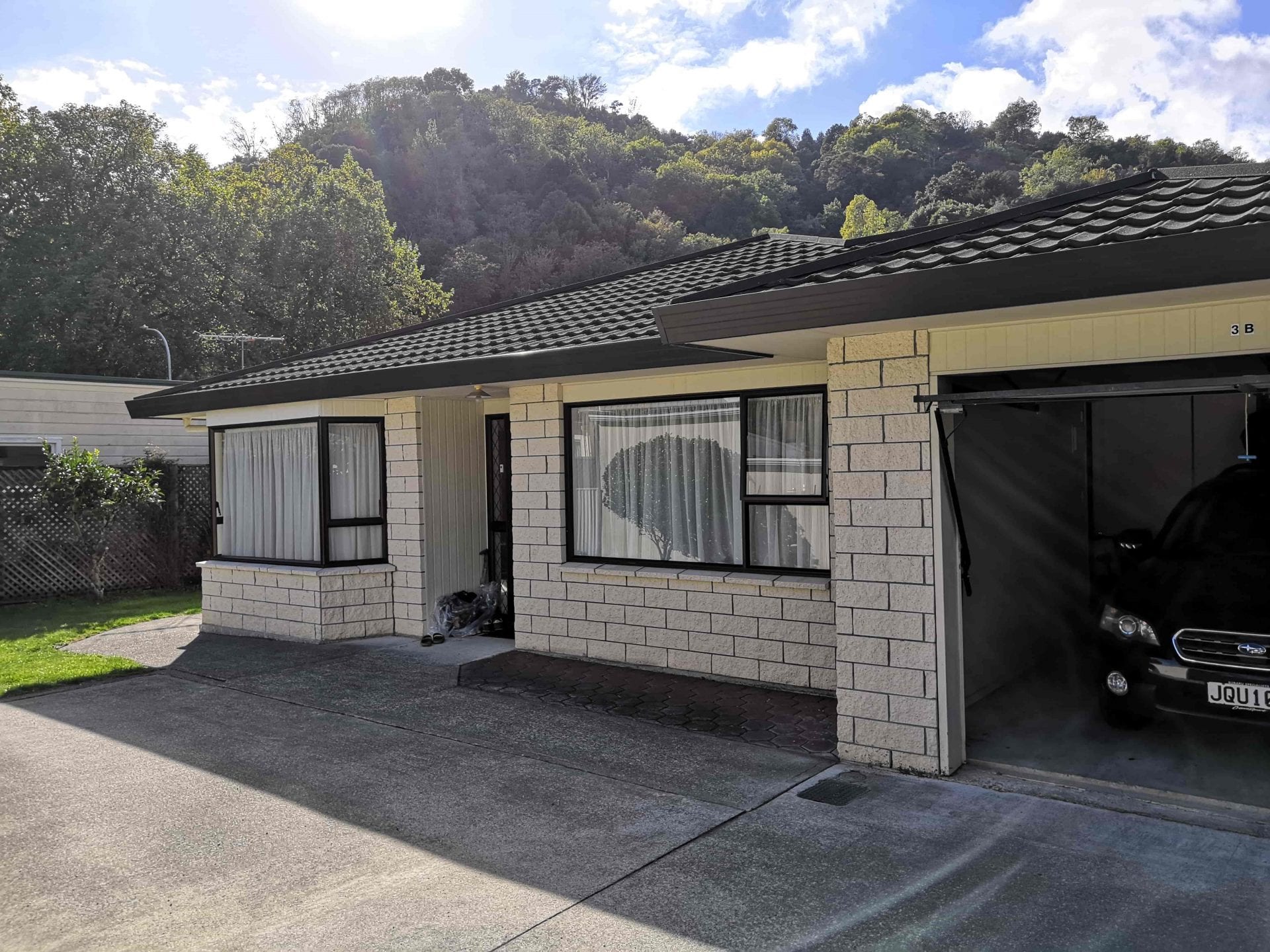
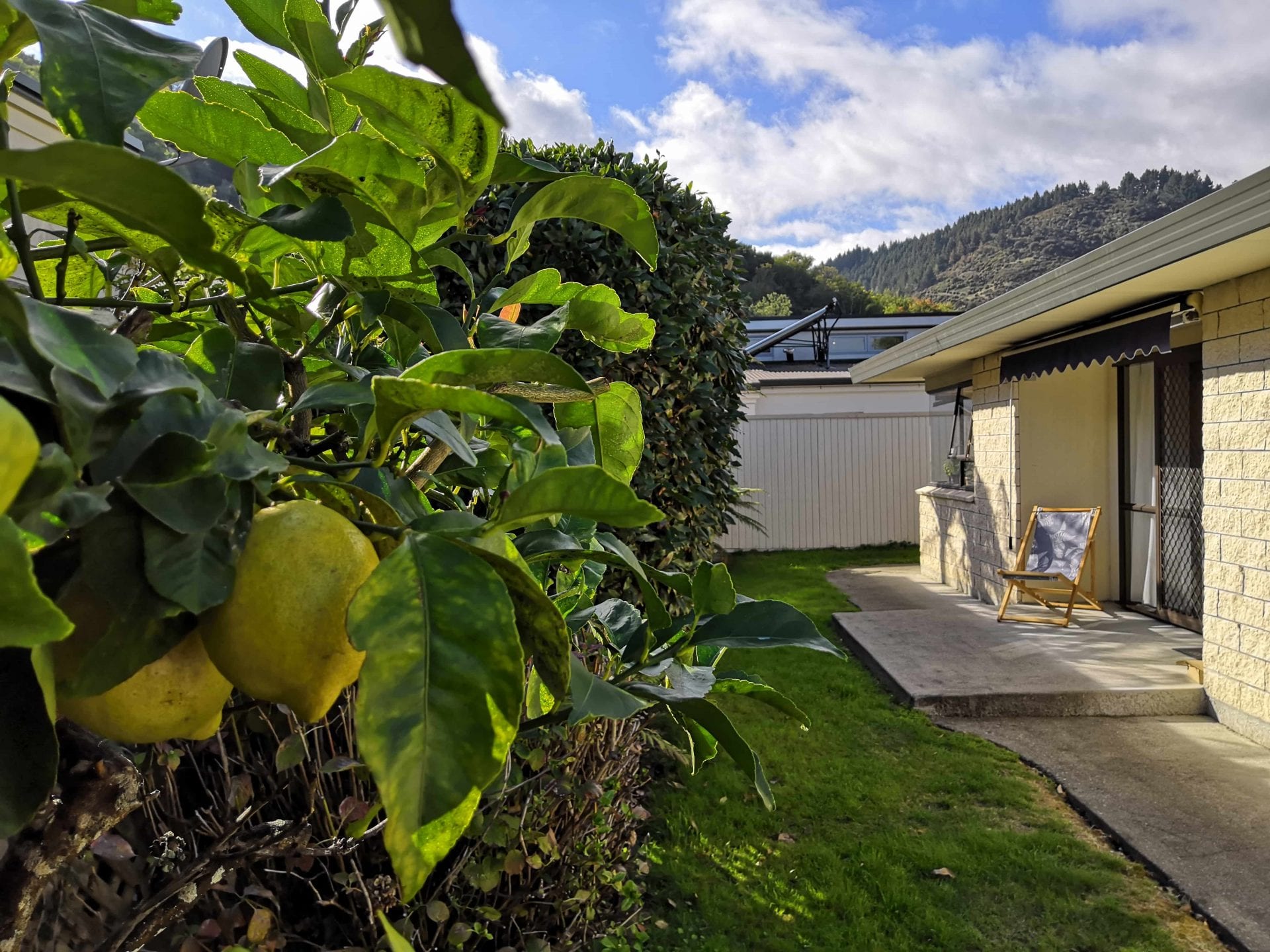
We pay NZ$450 per week for renting our house. This amount includes the agency fee, as the agency also acts as the property manager. We also pay NZ$85 per month for unlimited internet and NZ$100–120 per month for electricity (more in winter). Water is included in the rent.
The house is about 90–100 square meters, with an open-plan living room and kitchen, two bedrooms, two bathrooms, a small laundry room, and a garage. The backyard has a small lawn, flowers, and lemon trees. I’d rate the condition of the house at about 7 out of 10, but the location is excellent—only a five-minute walk to the institute. There’s also a supermarket, a park, a river, a school, and a kindergarten nearby (although we weren’t accepted into the kindergarten—more on that below).
Community
Before our move, we joined a Facebook group for Russian-speaking residents of New Zealand. Through that group, we were directed to another one for residents of Nelson, and thanks to it, we connected with wonderful people who were incredibly helpful and even took care of us during the first few weeks in our new city.
This warm and welcoming attitude—not only from the Russian-speaking community but from Nelson locals in general—became and still remains one of the most pleasant surprises of our move.
One day, we struck up a conversation with a man planting lavender in front of his house. It turned out that his family had lived in Nelson since the town was founded. When he learned we had just moved, he immediately offered his help and gave us his contact details in case we needed anything.
People say this kind of friendliness is a tradition and a hallmark of Nelson. So now we’re also happy to support anyone who chooses Nelson for study or life.
Buying a car
We were lucky to have met a lovely Russian family even before we moved. The head of the family is a professional auto mechanic, and he helped us find a suitable car, check its condition, and negotiate a good deal. Just a few days after arriving, we already owned a spacious Subaru Outback station wagon, which cost us NZ$5,500.
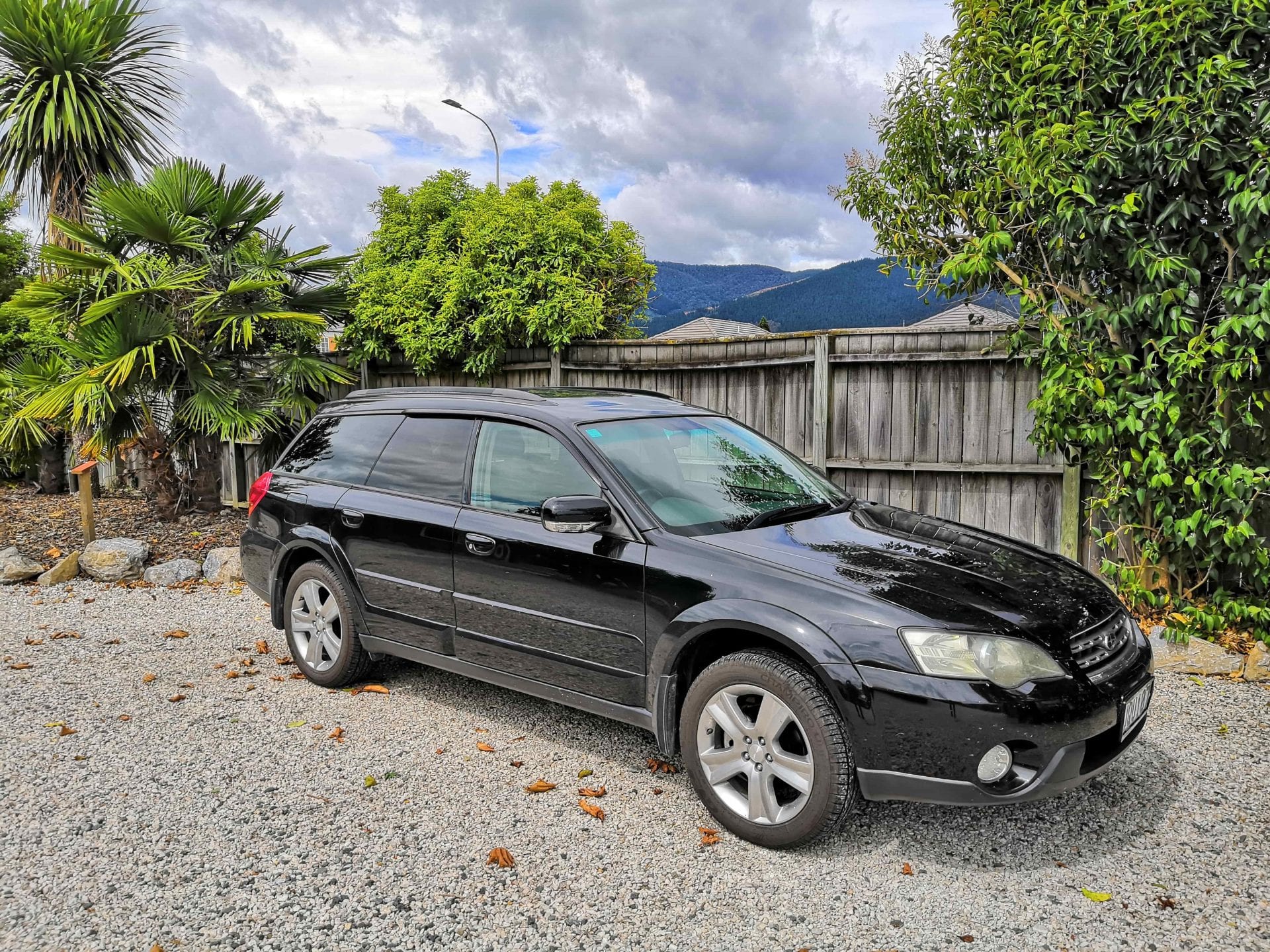
Life became so much easier with a car. We used it to attend house viewings, shop at big supermarkets, visit farms for fresh produce, explore nature, and head to beaches. It fit all our belongings and later helped us transport nearly all the furniture for our home.
The car-buying process in New Zealand is incredibly simple: transfer the money to the seller via online banking, stop by the post office to register the change of ownership, and that’s it—the car is yours.
You quickly get used to driving on the left side of the road (there are reminders on highways), but getting used to the reversed placement of the turn signal and windshield wiper controls takes a bit longer.
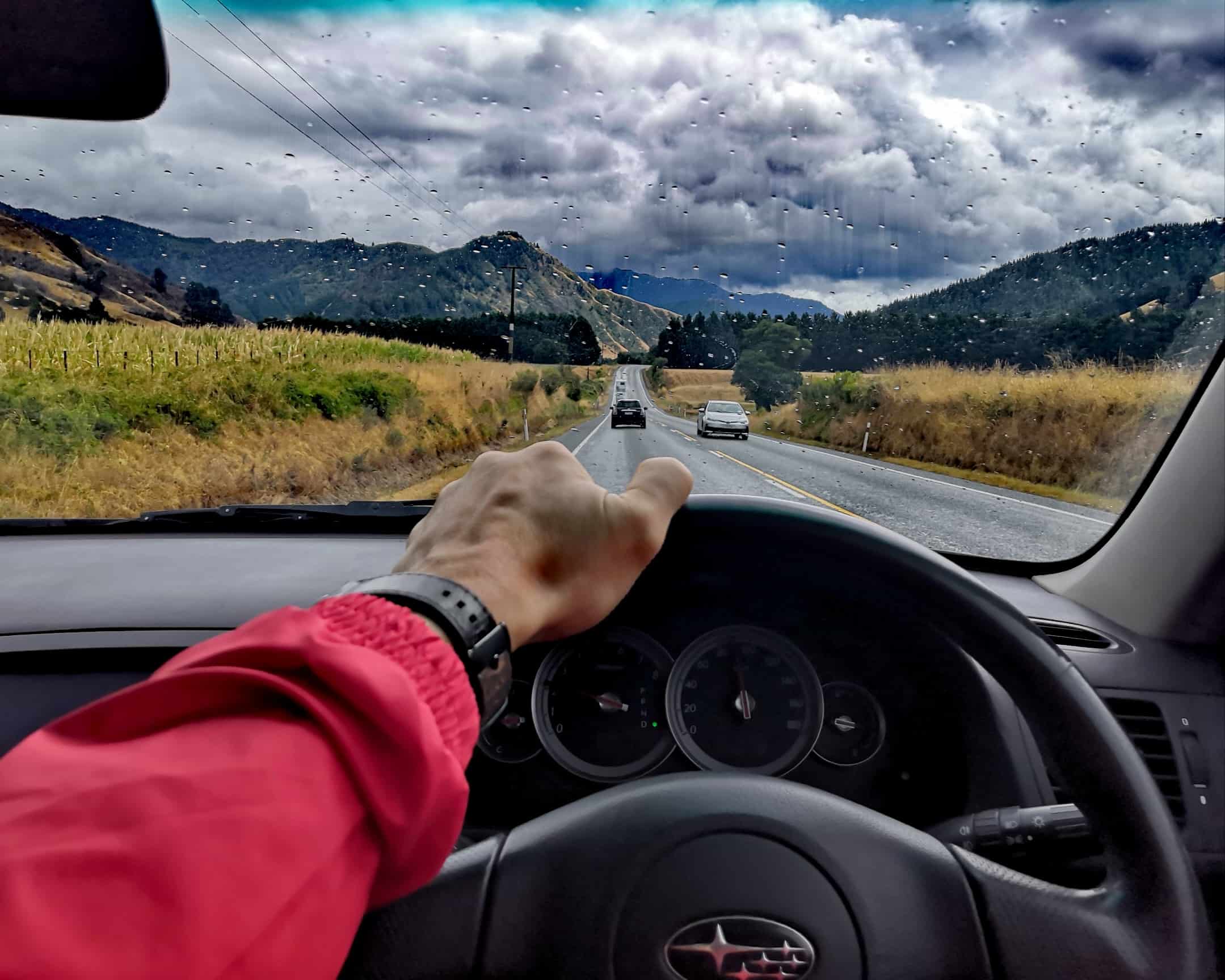
People here treat cars very practically—none of that sentimental attachment like we often have back home. Cars are viewed as useful machines. Service records are not common, so only a professional can assess whether a vehicle was well-maintained. Try to find such a mechanic and ask locals for recommendations. Also, look for listings directly from private owners to avoid overpaying at car yards (that’s what they call used car dealerships here).
Buying furniture
In 95% of cases, homes here are rented unfurnished. But don’t be intimidated by bare walls. Usually, there’s a kitchen unit, stove, range hood, and built-in wardrobes in the rooms (which we were very thankful for). Everything else you need to buy yourself.
To be honest, the thought of furnishing a three-bedroom house was pretty stressful at first. We were tempted to wait for a furnished place, even at a higher cost. But in the end, we rented an empty house, and didn’t regret it.
There’s a very active secondhand market here. People come and go all the time, and sometimes they sell everything in the house cheaply (garage sales). Facebook is full of groups with a steady stream of listings.
There are also several decent secondhand shops for furniture and appliances, large budget stores full of Chinese-made home goods, and word-of-mouth, which brought us a few great items—some even for free.
For example, a Russian engineer who heard we were looking for bikes simply gave me a decent mountain bike.
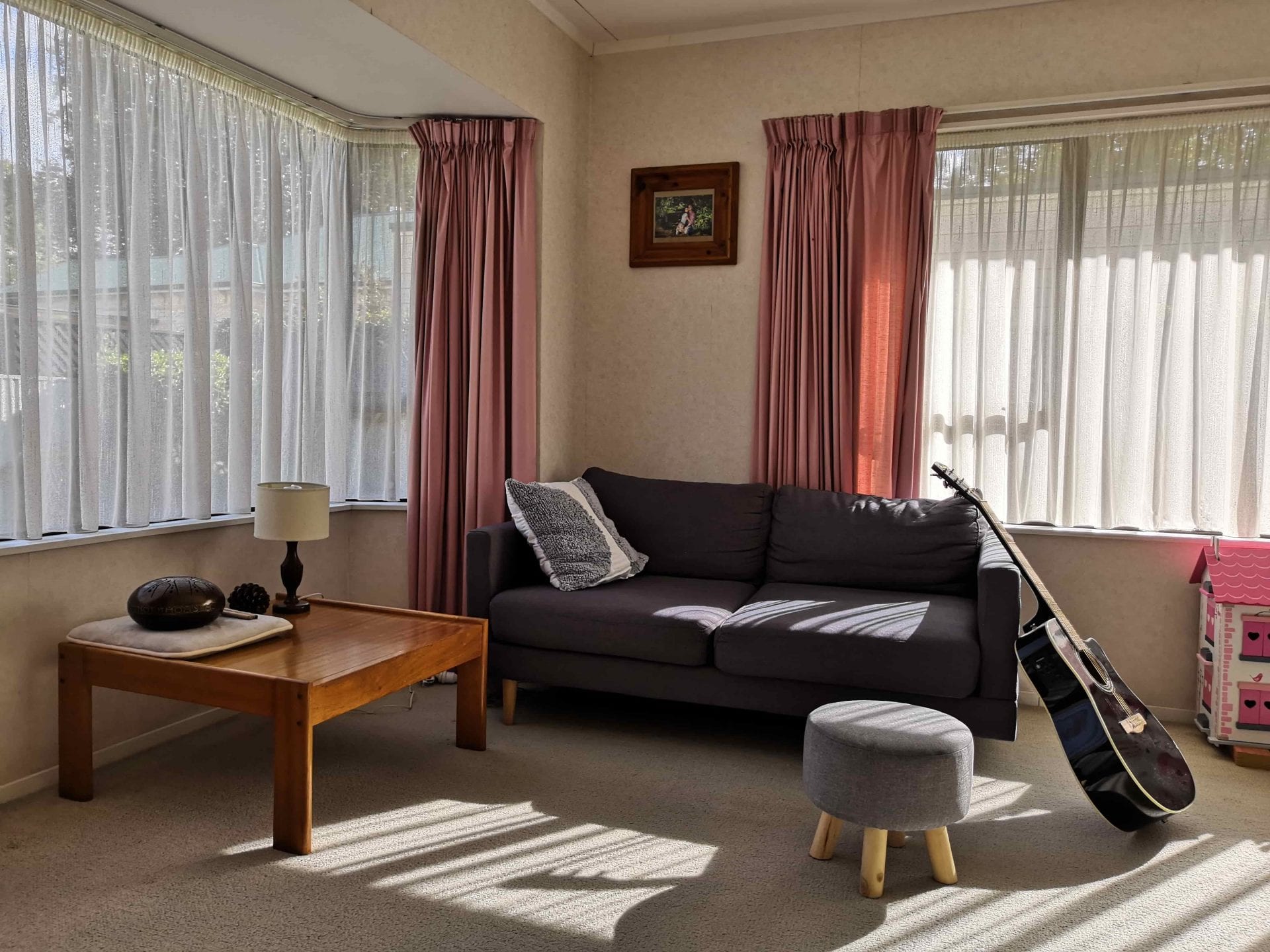
In total, we spent less than a month and around NZ$3,000 on everything we needed: furniture, appliances, kitchenware, bedding, blankets, etc. I transported everything by car and once rented a trailer to move a large mattress.
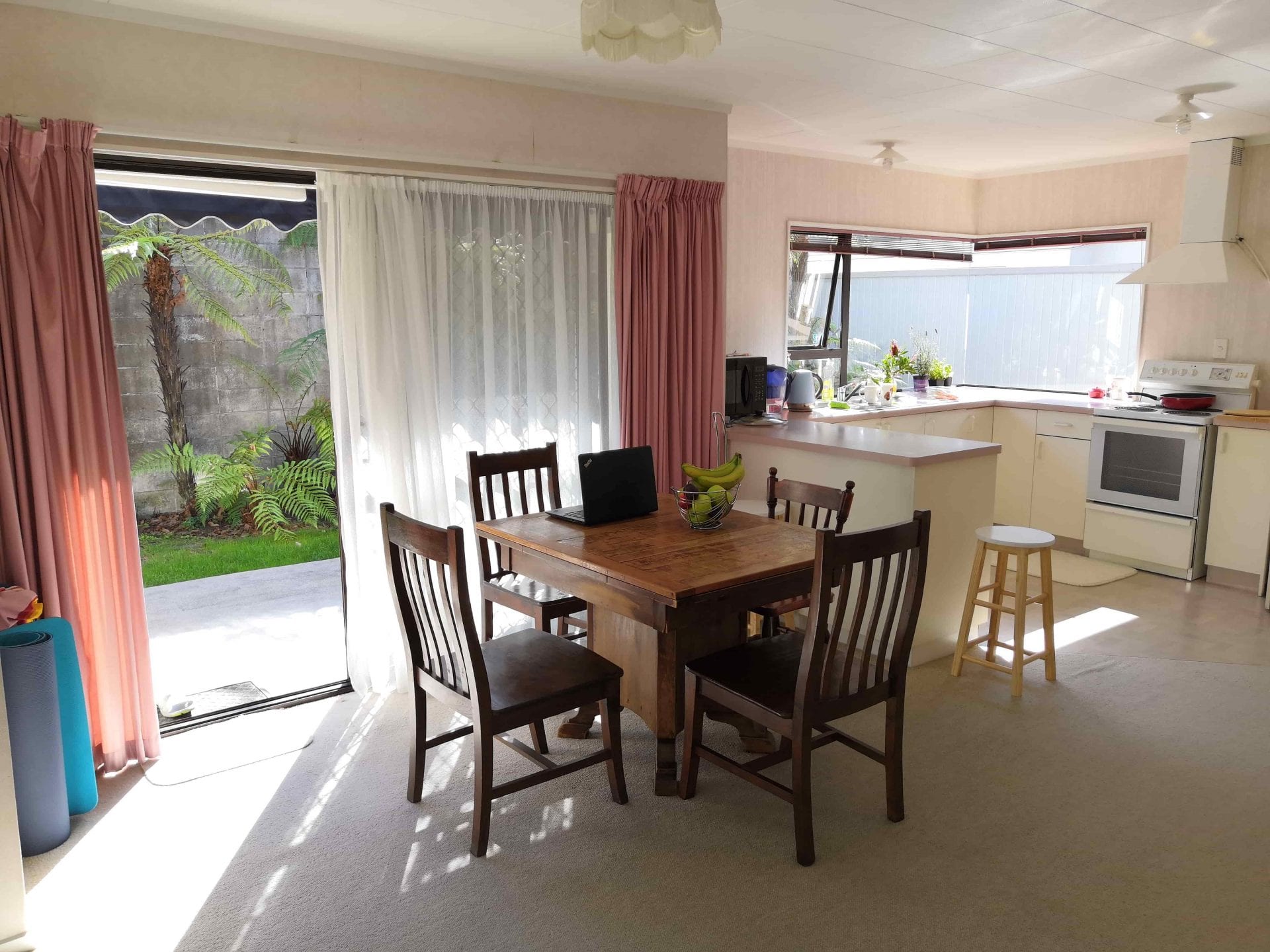
School for the child: prepare for the best
To enroll your child in a school (assuming at least one parent has a work visa), all you need is a permanent address—nothing else. They’ll ask about vaccinations, but only ask, no paperwork is required.
As for costs, we were asked to make an optional annual donation of NZ$50 and buy a school sunhat.
We received a very warm welcome. The school principal spent a lot of time with us, explained everything in detail, asked several times what makes our child happy, what they like or dislike, and showed us around the school.
She addressed every child we met by name. The atmosphere was light and friendly completely unlike the strict rules we’re used to in Russian schools. It felt almost unreal.
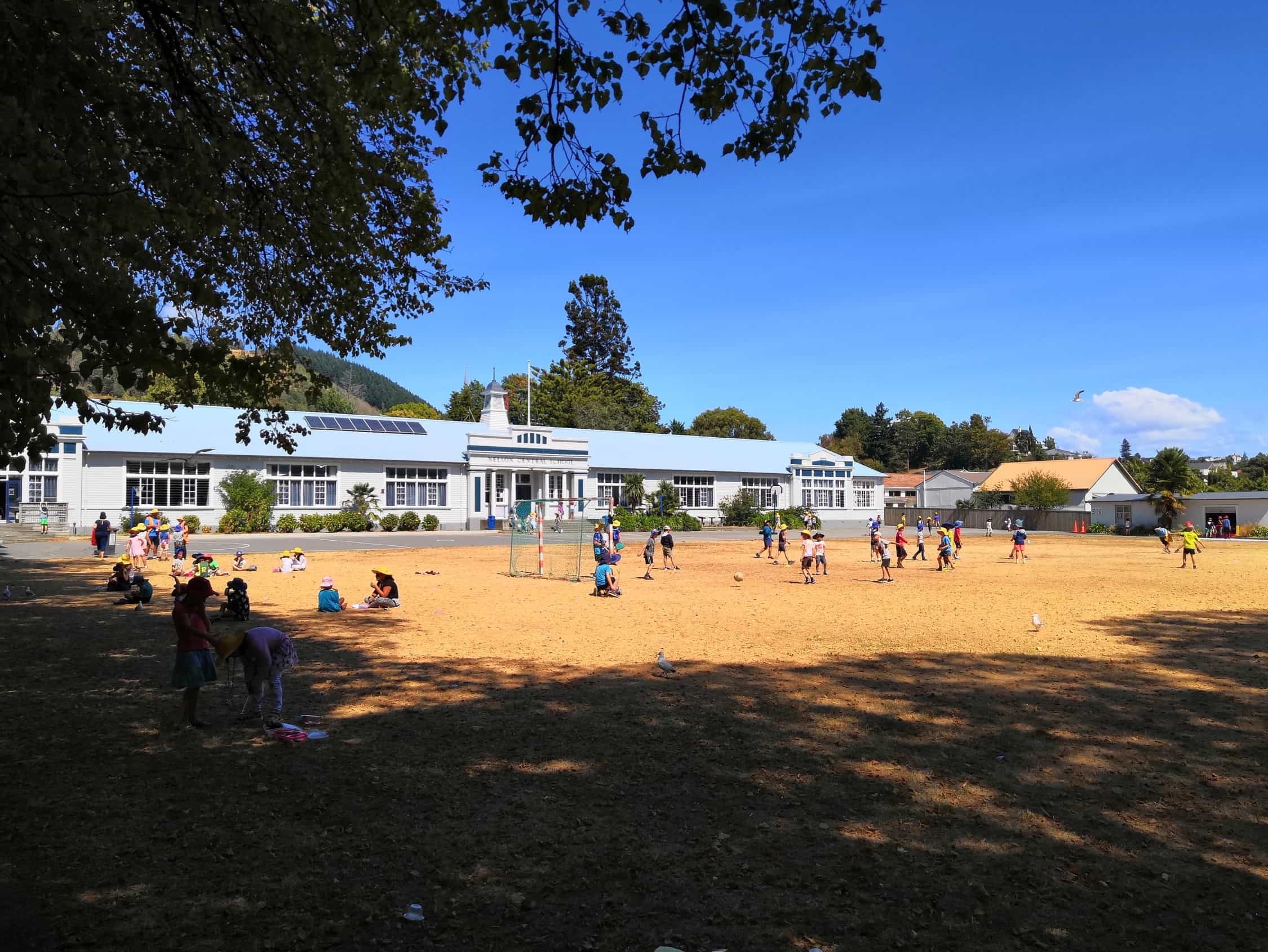
School campus
Kids here study from 9 a.m. to 3 p.m., with breaks and a long lunch. There’s almost no homework—which for our kids, exhausted by previous school routines, was pure joy. The teaching style is relaxed. We saw one class where the children were lying on the floor in savasana (a deep relaxation yoga pose). There are also free additional English lessons for non-native speakers.
All in all, I don’t know how they do it, but our child, who used to hate going to school back home, now runs there ahead of everyone else.
Kindergarten
Preschool arrangements turned out to be a bit more complicated. First of all, most of them are practically full. The preschool near our home turned us down, citing a lack of spots. The one at the institute told us to come back in six months. Two others could only offer limited hours on certain days.
However, all of that, and a friend’s recommendation, eventually led us to an excellent Montessori preschool. It’s a bit farther from home (six minutes by bike with a child seat or three minutes by car), but it has truly wonderful teachers and engaging developmental programs.
The core philosophy is that every child should feel happy and have opportunities for self-expression. For example, our daughter has taken a liking to caring for the vegetable garden there. Recently, they even sent us a whole story with photos showing how she tends to the garden and how this activity helps with her development.
They have an actual “mini city of professions” in the backyard. I’d happily play there myself! I can’t help but recall my gloomy Soviet kindergarten and feel happy for these kids who are clearly thriving here.
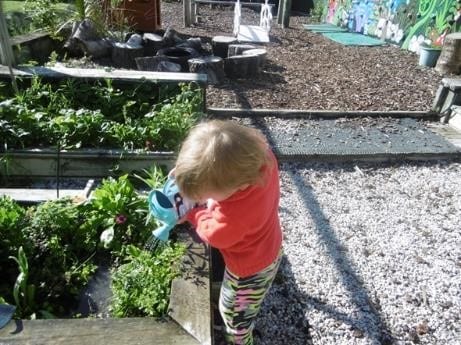
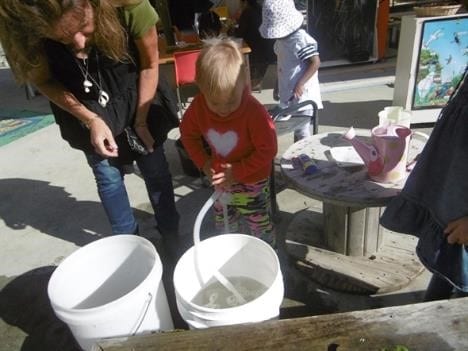
We pay NZ$40 per week for the 20 “free” hours. Visa type doesn’t matter here. The payment is essentially a kind of donation or contribution—around NZ$2 per hour. If you need more than the 20 hours, the costs increase significantly.
Study, leisure and first steps in job hunting
I’m currently studying at NMIT (Nelson Marlborough Institute of Technology) in the Level 9 Master of Applied Management program. It’s a fairly interesting course with a lot of practical information. I often find myself reflecting on my past professional experience through the lens of what I’m learning now.
I wouldn’t say studying is hard—it’s more about getting used to the education system and handling a large volume of information. Honestly, I don’t remember reading this much academic material even in Russian—let alone in English.
A lot depends on the tutors. Here, they are often the course authors as well, and the course content, tasks, and expectations can vary significantly. For instance, right now I have two tutors—one responds to every question with, “This country has high educational standards,” while the other says, “Just do what feels right to you.”
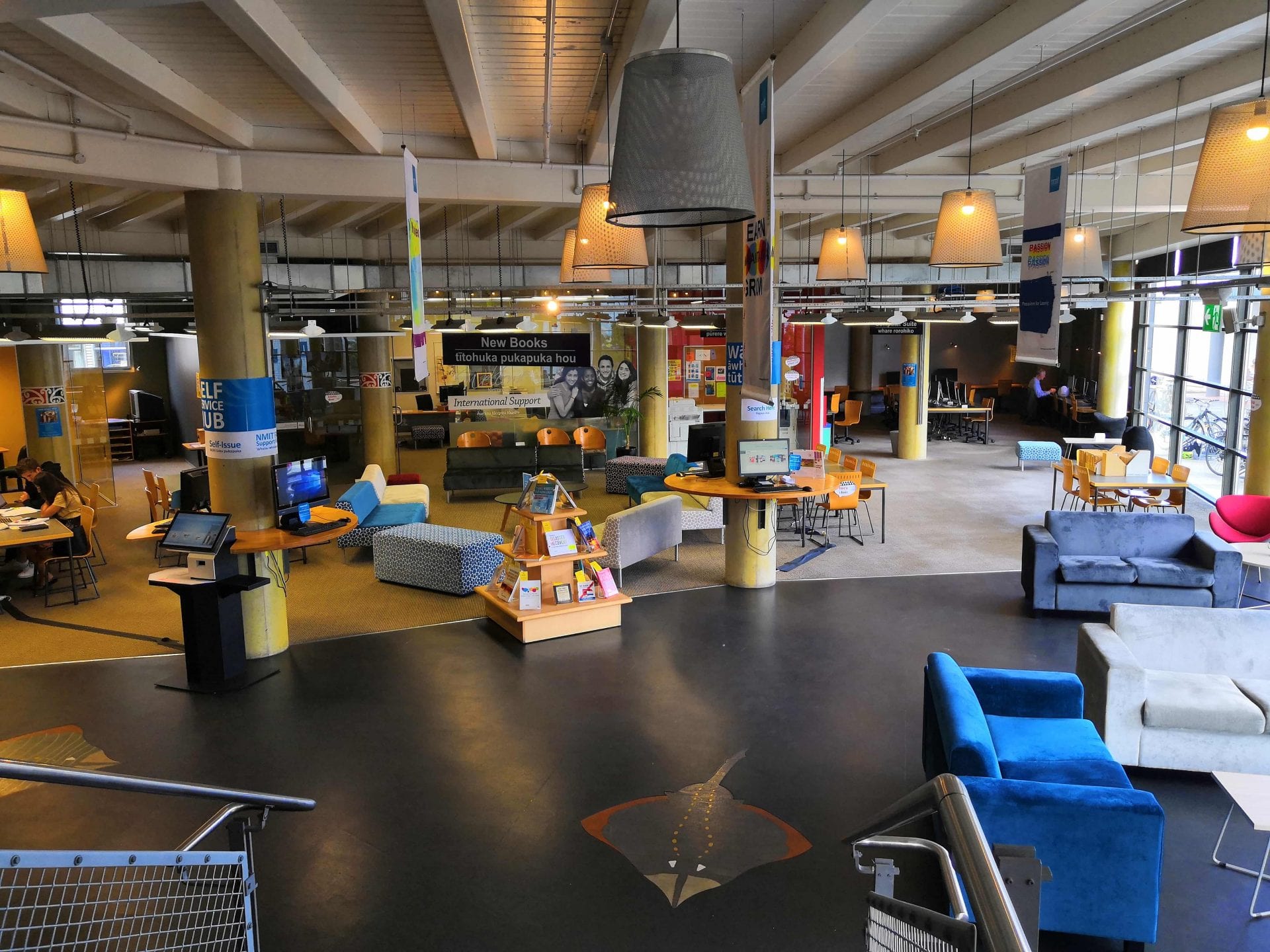
NMIT Campus
The schedule is flexible: only 8 hours per week of mandatory on-campus presence, and the rest is for self-study or group work. Many students take advantage of this to work part-time—mostly in retail or hospitality, provided their English is good enough.
There aren’t many vacancies in one’s field of expertise, but they do exist. I’ve already expressed interest in several roles where I could combine my professional background in event management with my current studies. The hiring process here usually consists of multiple stages and can take some time.
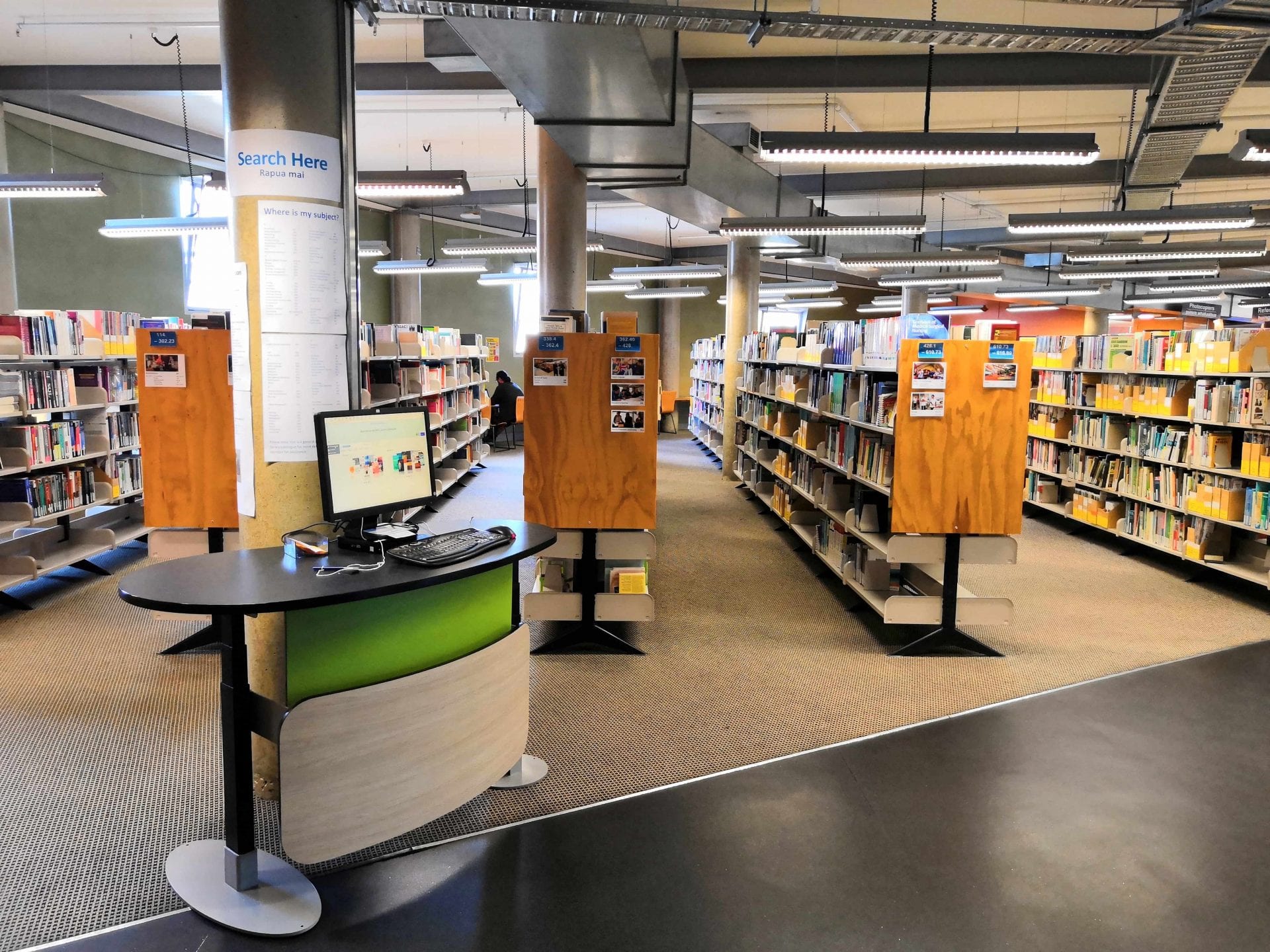
Library
My wife, Olga, is attending English courses at Nelson English Centre. The student group is incredibly diverse, with people from all over the world. It’s a lively environment with lots of events and a great atmosphere.
After she finishes the course, she’ll also begin looking for work. Hopefully, in a few months, we’ll be able to share how that journey turns out.
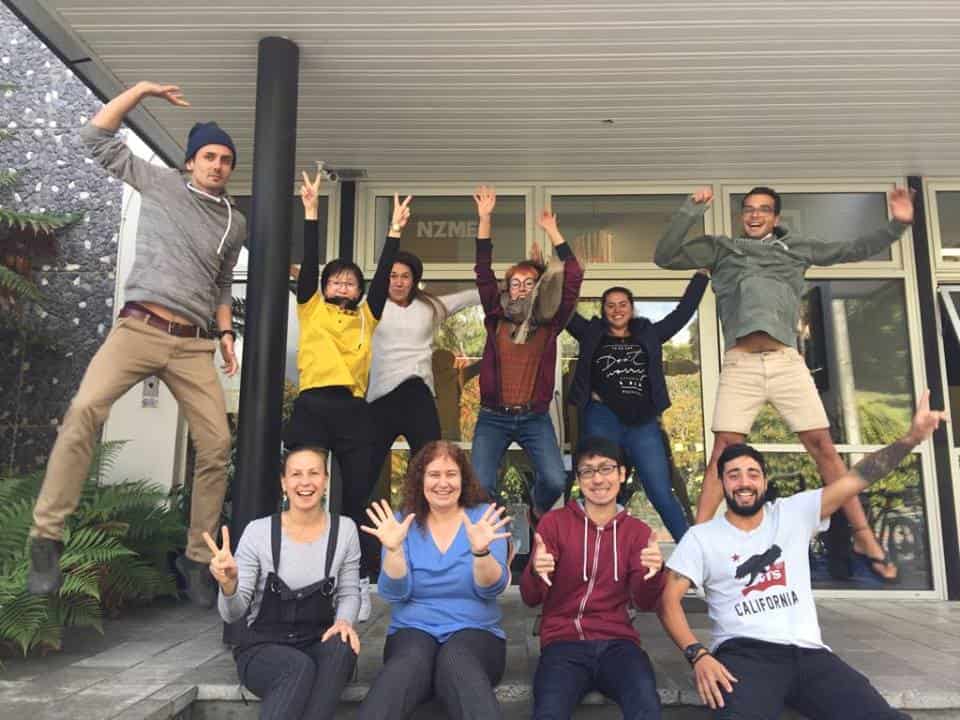
Students group from Nelson English Centre
In conclusion
As for leisure activities, I play squash regularly at a local club, and Olga practices yoga. We also enjoy running—everything here invites an active lifestyle. On weekends, we go on trips to scenic spots and ride bikes.
And just to make life a bit more exciting, I also signed up at the city’s volunteer center, where I found several roles that align with my interests—especially in the environmental sector.
All in all, we feel that New Zealand welcomes everyone who arrives with an open heart and good intentions. You just need to communicate more, ask questions, and explain your situation. People here are truly sincere and kind. They’re ready to help and show great respect and interest toward newcomers.
We’re very grateful to sunny Nelson and its residents for their warm welcome and hospitality!



